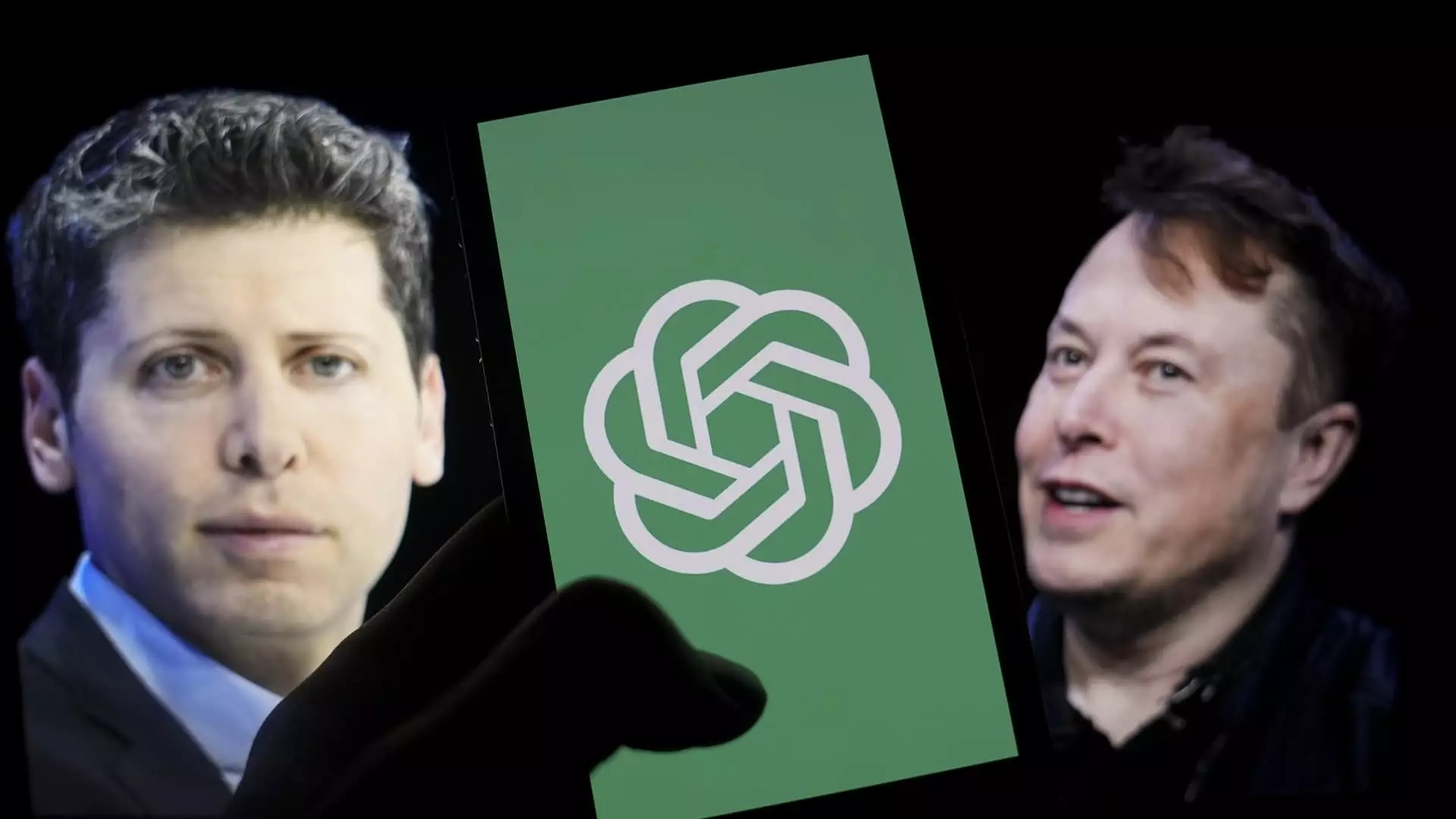In a striking development within the tech industry, Elon Musk has initiated legal action against OpenAI, intensifying an already significant legal dispute among prominent figures in artificial intelligence. Musk, alongside his AI venture xAI and former OpenAI board member Shivon Zilis, is pushing for a federal court injunction to prevent OpenAI from transitioning entirely into a for-profit entity. This move has lit a legal fuse in a saga marked by accusations of antitrust violations, investor intimidation tactics, and a volatile rivalry reminiscent of the competitive nature of the tech world.
Musk’s legal team, led by attorney Marc Toberoff, filed for a preliminary injunction aimed at curbing OpenAI’s progress toward a fully-profit-driven model. The crux of this injunction is an allegation that OpenAI has coerced its investors into a pact prohibiting them from funding any rivals, including Musk’s own startup xAI. This accusation not only speaks to the competitive dynamics within the AI sector but also advances serious legal implications, as Musk’s team argues that such actions violate racketeering and antitrust laws.
Such a move is not unprecedented; the underlying tension in the tech industry often manifests through legal battles, especially when financial gain and groundbreaking innovation intersect. Musk’s complaint escalates a legal feud that began as early as March 2024, when he first initiated a lawsuit against OpenAI in San Francisco before transitioning his grievances to the federal court system months later. The stakes involved are immense, not just for the companies involved but for the broader landscape of AI as it evolves and shapes the future.
The allegations brought forth by Musk’s legal team are twofold. Firstly, they accuse OpenAI of engaging in behaviors that stifle competition by obstructing access to vital funding sources. This creates a chilling environment where development in AI can be monopolized by a select few, undermining the innovative spirit that drives the tech industry. Secondly, Musk’s team argues that OpenAI should be held accountable for benefiting from what they label “wrongfully obtained competitively sensitive information,” presumably secured through its close ties with Microsoft.
Such accusations raise critical questions about the ethical implications of partnerships and investor relationships in the tech sector. Musk’s insistence that OpenAI cannot operate as a “Frankenstein,” amalgamating corporate interests to serve Microsoft’s goals, speaks to a broader concern regarding monopolistic practices that could hinder fair competition. In an industry projected to surpass a trillion dollars within the next decade, protecting the integrity of competitive practices has never been more paramount.
Musk’s confrontation with OpenAI does not occur in isolation. Key players like Microsoft, which has heavily invested in OpenAI, and Reid Hoffman, a significant tech investor, are tethered to the unfolding drama. The court battle marks a considerable shift in how collaborations within the AI space are viewed, especially concerning how investor influence can shape decision-making and competitive dynamics.
Microsoft’s previous acknowledgment of losses connected to its OpenAI investments adds another layer of complexity. Their role as a major stakeholder heightens the scrutiny regarding the breadth of their influence on OpenAI, particularly in light of the Federal Trade Commission’s ongoing investigations into investments and partnerships in the AI field. The FTC’s scrutiny highlights the need for transparency and fairness in the dealings of leading tech firms and the potential impacts on market competition.
OpenAI’s evolution from a nonprofit entity to a capped-profit model and now toward a fully for-profit structure resonates with broader trends in the tech industry where profit motives increasingly supersede founding missions. The original ethos of fostering AI for the benefit of humanity seems to be shadowed by the burgeoning financial potential of AI technologies. As OpenAI gears towards potentially a $157 billion valuation after its latest funding round, the significance of maintaining ethical obligations to competitors and consumers must be addressed.
Musk’s legal challenge serves as a reminder of the contentious atmosphere within the AI sector, where innovation and competition thrive. The marked surge in business spending on generative AI underscores its potential, yet a paramount concern remains: ensuring that growth does not come at the cost of ethical practices and fair competition.
The ongoing legal confrontation between Musk and OpenAI highlights essential themes of competition, ethics, and the ramifications of corporate partnerships in the rapidly evolving AI landscape. The outcome could have far-reaching implications not only for the companies involved but for the industry at large as it navigates the complexities of profit, competition, and innovation. As the legal proceedings unfold, all eyes are set on the implications arising from one of the defining conflicts of our time in technology.


Leave a Reply